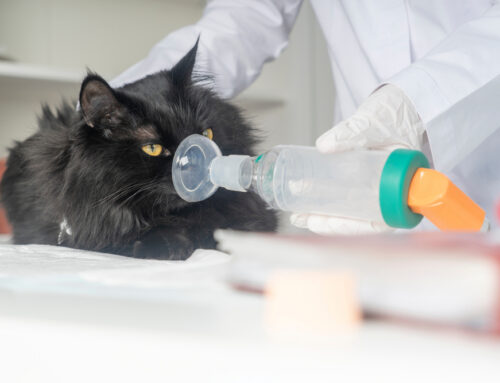If your pet develops a health issue that requires veterinary attention, you must be able to differentiate between urgent conditions and emergencies to ensure your furry pal receives timely and appropriate medical assistance. Our Creature Comforts Veterinary Service team describes common conditions and signs that you need to be able to recognize to determine when your pet needs urgent care and when they need emergency treatment.
Urgent conditions in pets
Pets’ urgent care conditions often involve health issues that require attention and treatment but are not immediately life-threatening. While these conditions may not necessitate immediate emergency intervention, they still demand prompt care to prevent complications. Early intervention and appropriate urgent health issue management can help prevent minor issues from escalating into serious health concerns. Conditions that require urgent care for pets include:
- Minor injuries — Superficial wounds from minor accidents may bleed and cause discomfort, but are usually not severe. These injuries may require clipping the fur around the wound, cleaning with a pet-safe antiseptic solution, and applying a bandage or dressing a wound.
- Nail injuries — Broken or torn nails are painful for pets and can result in significant bleeding. Trimming the nail, applying styptic powder to stop the bleeding, and keeping the area clean can help manage such injuries.
- Vomiting and diarrhea — Mild gastrointestinal (GI) upset can result in vomiting and diarrhea, which you may be able to manage at home by withholding food from your pet for a short period and gradually reintroducing a bland diet. However, if your pet is showing other illness signs, such as lethargy, abdominal discomfort, or fever, they should receive veterinary care.
- Skin irritation — Pets may develop mild allergic reactions to pollen, dust, grooming products, insect bites and stings, and myriad other allergens that manifest as skin irritation and inflammation. Skin issues, such as hotspots or infections, can worsen rapidly without proper care, so seek veterinary treatment if your pet’s skin appears irritated.
- Ear infections — A mild ear infection, characterized by ear redness, odor, or discharge, can cause your pet significant discomfort and may quickly worsen without prompt treatment. If you notice your pet shaking their head or scratching at their ears, ensure they receive urgent veterinary care.
- Eye issues — Conjunctivitis, or inflammation of the membrane covering the eye and eyelid, is one of the most common eye issues that affect pets. This ocular problem can be the primary issue or a sign of a more serious concern, so seek treatment if you notice your pet squinting, or having eye discharge or redness.
- Muscle sprains or strains — Pets may limp or experience lameness because of a muscle strain or sprain, especially after vigorous exercise or play. Rest and restricted activity can help reduce pain and inflammation, but your pet may require urgent care and anti-inflammatory medication to alleviate their discomfort.
Emergency conditions in pets

Emergencies require immediate veterinary attention to prevent further harm or potentially to save your pet’s life. If your pet is experiencing an emergency, ensure you remain calm and act quickly. A swift response can make a significant difference in your pet’s outcome. Pets require emergency care if they have any of the following conditions:
- Respiratory distress — Labored breathing, wheezing, or gasping can indicate various respiratory issues such as pneumonia, lung collapse, or heart failure. A bluish discoloration of the gums or tongue (i.e., cyanosis) indicates your pet is experiencing severe oxygen deprivation that requires emergency treatment.
- Severe wounds — Deep lacerations, puncture wounds, or injuries that cause heavy bleeding require immediate attention. Excessive bleeding can lead to shock and life-threatening blood loss.
- Fractures — Limb fractures, especially compound fractures in which bones are protruding through the skin, are painful and require immediate medical care. Fractures near vital organs or major blood vessels can lead to internal bleeding or other complications that also necessitate emergency treatment.
- Blunt force trauma — Being hit by a car, falling from a height, or other traumatic incidents can cause internal injuries, fractures, or head trauma. Signs include disorientation, unconsciousness, or difficulty moving, which indicate your pet needs emergency care.
- Toxin ingestion — Your pet may ingest a toxic substance such as chocolate, grapes, xylitol, household cleaners, medications, or plants. Toxin ingestion can lead to poisoning, with signs ranging from GI upset to seizures, organ failure, or death.
- Acute abdominal pain — If your pet has abdominal pain, they may be experiencing an emergency condition such as gastric dilatation-volvulus (GDV), pancreatitis, or intestinal or urinary obstruction.
- Sudden collapse — Sudden collapse or weakness may be caused by cardiac issues, neurologic problems, or other serious conditions that require emergency treatment.
Keep in mind that these common urgent or emergency conditions are a few of many. If your pet becomes ill or injured and you are unsure of the veterinary care level they need, call our Creature Comforts Veterinary Service team.







Leave A Comment